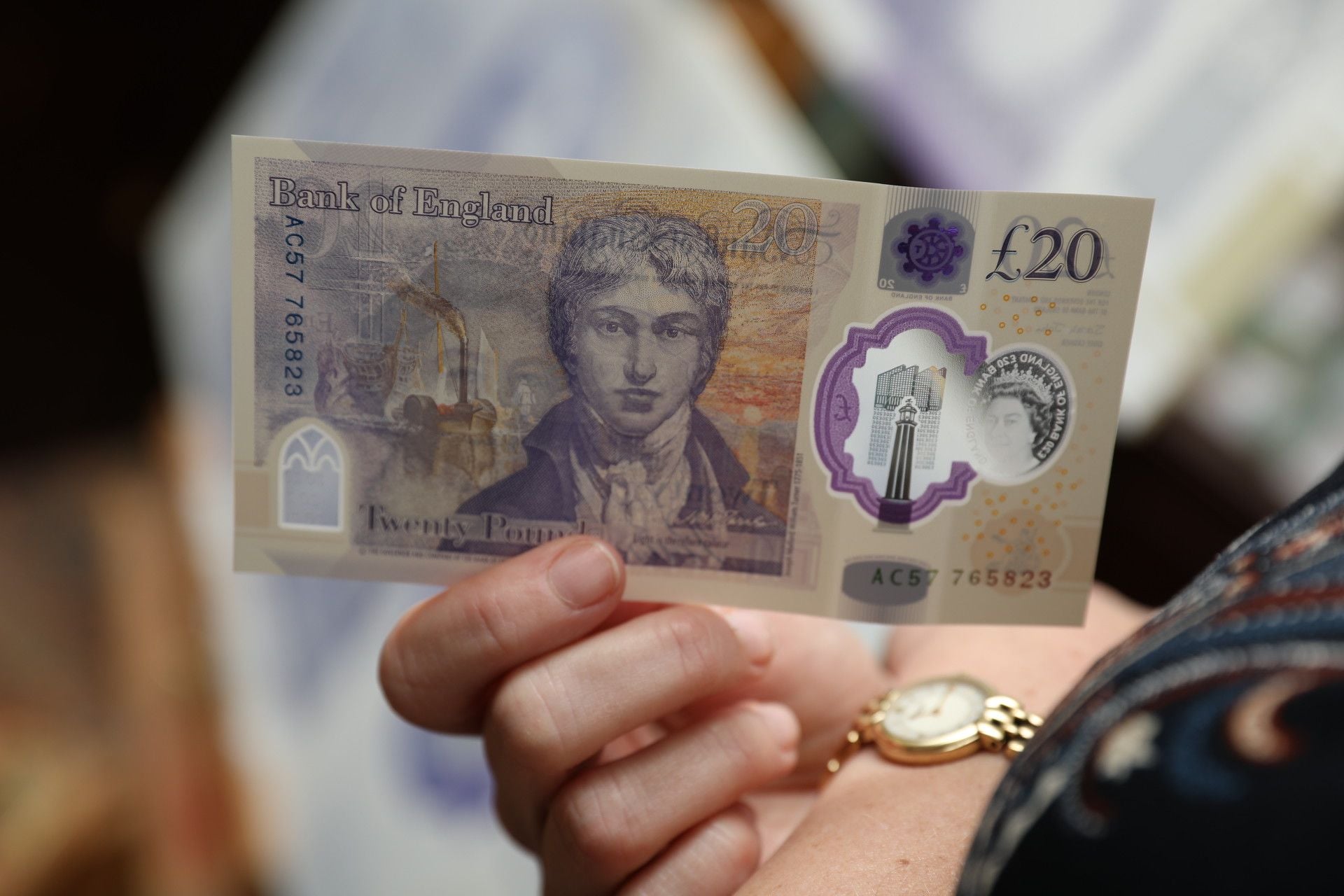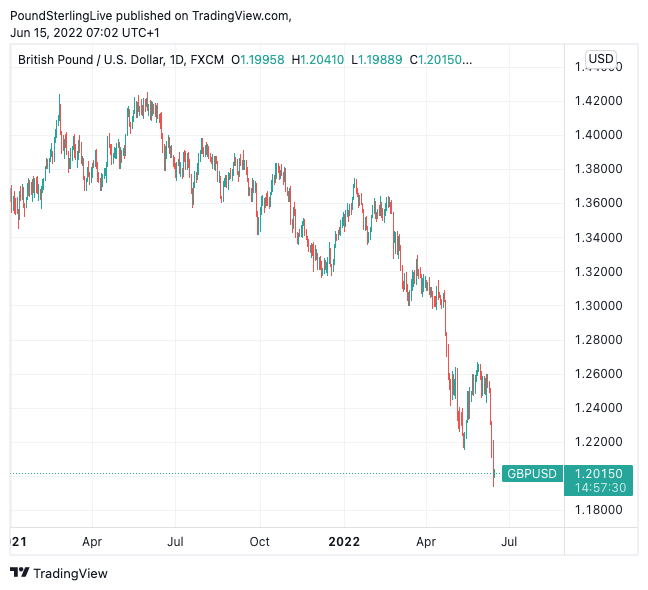Bank of England Could Hike 75-100bps to Defend Pound Sterling says Economist,
- Written by: Gary Howes

Image © Bank of England
With Pound Sterling under siege the Bank of England has little choice other than to deliver a rate hike that exceeds 25 basis points, according to economists.
The calls come as members of the Monetary Policy Committee meet on Threadneedle Street to debate how to alter UK monetary policy in the face of surging domestic inflation, a slowing economy and, importantly, interest rate rises at the Federal Reserve.
"Since the principal cause of the current inflation is rapidly rising dollar prices on global markets, the Bank of England has no choice but to defend sterling. It will therefore follow what it expects the Fed to do," says independent economist Frances Coppola.
The Federal Reserve is expected to raise interest rates 75 basis points on Wednesday in light of surging U.S. inflation rates.
The Bank cannot deliver monetary policy in a bubble and will be acutely aware that outsized hikes in the U.S. will impact not only UK monetary conditions but also the Pound.
They must therefore be bold in the face of an aggressive Fed.
"Last time, it did not follow the Fed strongly enough, and sterling fell. So this time it must be more hawkish. I expect a BoE rate rise of at least 50 bps, probably more like 75 or 100," says Coppola.
Above: GBP/USD shown at daily intervals.
GBP to USD Transfer Savings Calculator
How much are you sending from pounds to dollars?
Your potential USD savings on this GBP transfer:
$1,702
By using specialist providers vs high street banks
"The Bank of England may be forced to go with the larger rate hike at tomorrow’s BoE meeting (market leaning more toward only a 25-basis point move) or sterling could face a further broad drubbing," says John Hardy, Head of FX Strategy at Saxo Bank.
The pace and quantitaty of rate hikes in the U.S. relative to the UK impacts on the yield paid on U.S. and UK sovereign debt and other financial assets.
If rates rise faster in the U.S. relative to the UK it creates a pull on capital, drawing demand to the Dollar at the expense of the Pound.
The Pound-Dollar exchange rate fell to below 1.20 to test a low at 1.1934 on Tuesday, a 28-month low.
Over the course of 2022 Sterling has lost 11.0% in purchasing power against the Dollar at a time of surging global commodity prices.
This therefore means UK businesses and consumers are paying an 11% premium on already elevated prices for fuel commodity, goods and international services, raising inflation further above the Bank of England's 2.0% target.
The Bank of England has indicated in the past that it estimates a 10% depreciation of the Sterling Trade Weighted Index boosts the headline rate of CPI inflation in two years' time by 0.75% and 2.75% after four years.
"Sterling weakness is adding to the dilemma facing the Bank of England as it attempts to fight rising UK inflation without hurting Britain's economy too much in the process," says Robert Howard, a Reuters market analyst.
"If GBP/USD extends south through 1.20, it may lessen the probability of more than two Monetary Policy Committee members voting to keep the Bank Rate at 1% next month, for fear of adding to sterling and inflation woes," adds Howard.
Economist Steffan Ball at Goldman Sachs says the Bank looks as though it will want to pause rate hikes in the second half of the year for fear of contributing to an economic recession.
However, the Bank might not have the luxury of the pause if the Pound continues to lose value.
"A pause in the hiking cycle remains a risk if the outlook deteriorates more than in our baseline projection, but further increases in long-term inflation expectations or a further sharp GBP depreciation could lead to a faster hiking pace in coming months," says Ball.
GBP to USD Transfer Savings Calculator
How much are you sending from pounds to dollars?
Your potential USD savings on this GBP transfer:
$1,702
By using specialist providers vs high street banks





